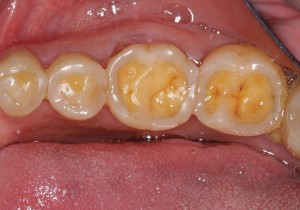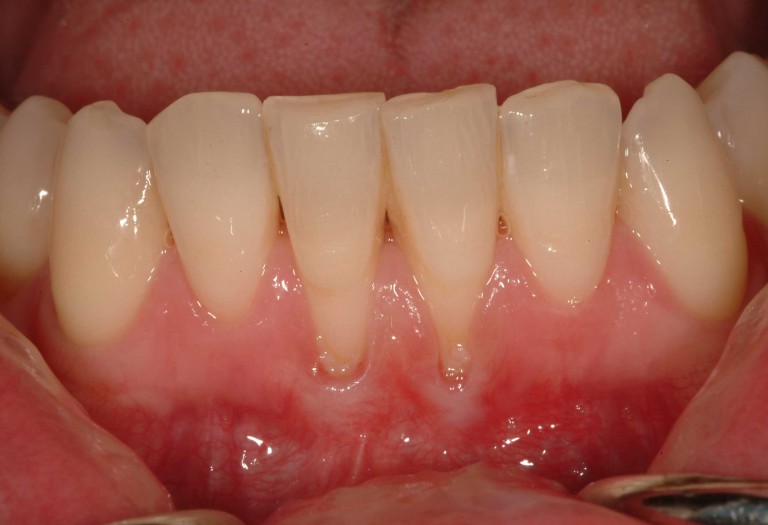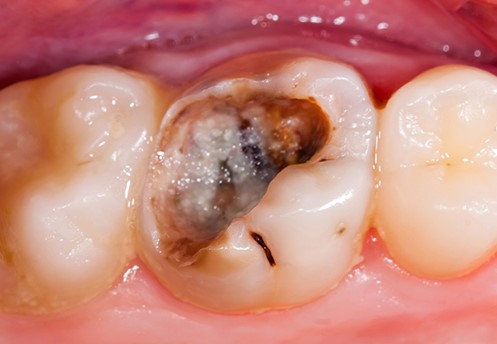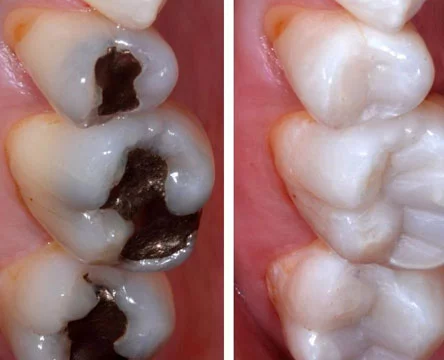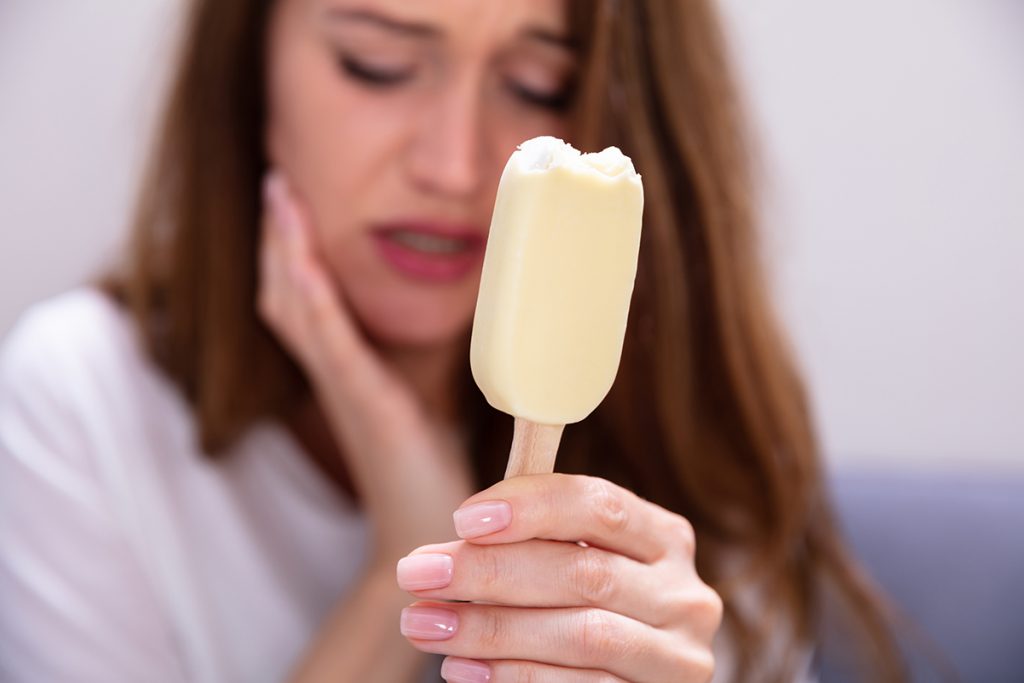
Reasons for Hot and Cold Sensations in Your Teeth
Introduction
Have you ever taken a sip of a steaming cup of coffee or bitten into an icy treat, only to be met with a sudden jolt of discomfort in your teeth? If so, you’re not alone. Many people experience hot and cold sensations in their teeth and these sensations can be indicative of various underlying dental issues. In this blog post, we’ll delve into the reasons behind these sensations and what they might be telling you about your oral health.
Temperature Sensitivity Symptoms
The main symptom is tooth pain when exposed to heat or cold. Some patients report feeling a stabbing pain. Other people experience a dull, lingering discomfort after exposure to hot or cold beverages. In many cases, the treatment plan for dental sensitivity is determined by the length of time you experience temperature sensitivity after exposure.
Less Than 15 Seconds of Sensitivity
If pain or discomfort lasts only for a few seconds immediately after drinking a hot or cold beverage, the problem is unlikely to be serious. In these cases, the sensitivity is likely the result of mild tooth decay (cavities), a loose or lost filling or minor gum recession. It makes sense to schedule a visit to the best dentist in Delhi or wherever you are as soon as possible.
Sensitivity That Lasts 20 Seconds or More
In these cases, you have likely suffered permanent damage to the internal structure (pulp) of your tooth. This could have been caused by deep dental decay, a tooth fracture, an accident or trauma or it could be the result of a serious infection. In any of these cases, it is best to get a dental appointment scheduled at the best dental clinic in Delhi or wherever you are, immediately for a thorough evaluation – before the pain becomes constant and unbearable.
Reasons for Hot & Cold Sensations
Tooth Sensitivity
One of the most common reasons for experiencing hot and cold sensations in your teeth is tooth sensitivity. This occurs when the protective enamel on your teeth wears down, exposing the underlying dentin. Dentin contains tiny tubules that lead to the nerves of the tooth. When hot or cold substances come into contact with these tubules, it can trigger discomfort or pain.
Dental Decay
Tooth decay, commonly known as cavities, is another culprit for temperature-related tooth pain. When bacteria in the mouth produce acid, it can erode the enamel and lead to cavities. As these cavities progress, they can cause heightened sensitivity to hot and cold stimuli. Ignoring cavities can lead to more severe dental problems, so it’s essential to address them promptly.
Gum Recession
If your gums are receding, exposing the roots of your teeth, you may experience heightened sensitivity. The roots lack the protective enamel covering found on the crowns of the teeth, making them more susceptible to temperature-related discomfort. Gum recession can result from factors such as aggressive brushing, gum disease or aging.
Cracked Teeth
A cracked tooth can expose the sensitive inner layers of the tooth to temperature changes, causing pain or discomfort. Cracks can occur due to various reasons, including teeth grinding, biting on hard objects, or trauma to the mouth. Seeking dental attention is crucial if you suspect a cracked tooth, as it can worsen over time.
Dental Procedures
Sometimes, hot and cold sensations can be a temporary side effect of dental procedures. Procedures like teeth whitening or dental fillings can cause sensitivity, but this usually subsides over time. If the sensitivity persists, it’s essential to consult with your dentist to rule out any complications. Currently, counselling on tooth sensitivity to patients is routinely done in the best dental clinics in South Delhi.
Exposed Nerve Roots
The biological reason behind teeth sensitivity to cold starts in the pulp of the tooth. The nerves in the pulp make teeth sensitive to cold when tooth roots become exposed due to receding gums or gum disease. Pathways called dentinal tubules are filled with fluid, and when a stimulus like cold air or cold liquid is applied to the exposed dentinal tubules, the fluid in the tubules moves and triggers a pain sensation in the nerve.
Sinus Infections
Surprisingly, sinus infections can also contribute to tooth sensitivity. The roots of the upper teeth are in close proximity to the sinuses, and when sinuses become inflamed or infected, it can cause referred pain to the teeth. If you’re experiencing both dental and sinus issues, it’s wise to consult both a dentist and a healthcare professional.
How Dentists Can Help With Dental Sensitivity
If your dental sensitivity doesn’t improve after a few days or it gets worse, you should contact our team of specialists at ‘Smile Delhi,’ to find out more about professional treatments to improve comfort. Some of the options we may recommend include:
Fluoride Therapy
Home applications of fluoride treatments and toothpastes that combine fluoride with other ingredients like carboxymethyl cellulose, hydroxyethyl cellulose, and polyethylene glycol have been proven to decrease dental sensitivity. Additionally, if you type “dentist near me” you would be directed to the best dentists in Delhi or wherever you are who will recommend in-office silver diamine fluoride application during your six-month dental exams to decrease chronic dental sensitivity.
Root Canal
Severe toothache and sensitivity often occur as the result of damage or decay accessing the sensitive nerve structures inside the pulp layers of teeth. When this occurs, we’ll need perform an advanced restorative dental treatment called root canal treatment. This procedure involves removing the damaged nerve and pulp tissue. Then, we disinfect and refill the inside of the tooth. Finally, a dental crown is placed to strengthen and protect the root canal treated tooth.
Gum Graft
If gum disease and receding soft tissue exposes the tooth roots causing dental sensitivity, we may recommend a gum graft. This surgical procedure will protect the tooth roots, improve overall health, and eliminate sensitivity. The best dentists in Delhi are regularly conducting this procedure.
Dental Restoration
If there is a crack, chip, or cavity, we will repair the tooth, using a tooth-coloured filling, inlay, onlay or dental crown. This will protect your damaged tooth and improve sensitivity.
Conclusion
Experiencing hot and cold sensations in your teeth can be more than just a momentary inconvenience – it can be a signal that something may be amiss with your oral health. Ignoring these sensations could lead to more severe issues. If you’re consistently experiencing discomfort, it’s crucial to schedule a dental appointment. A professional evaluation can help identify the root cause of the problem and guide you towards the appropriate treatment to keep your smile healthy and pain-free.
To book an appointment with us at, ‘Smile Delhi – The Dental Clinic’– call us on +91-9811106871 or whatsapp Dr. Suprriya B Bhatia on +91-9811106377. You can also mail us on [email protected].
“We Care To Make You Smile”
Posted by: Dr Hema


